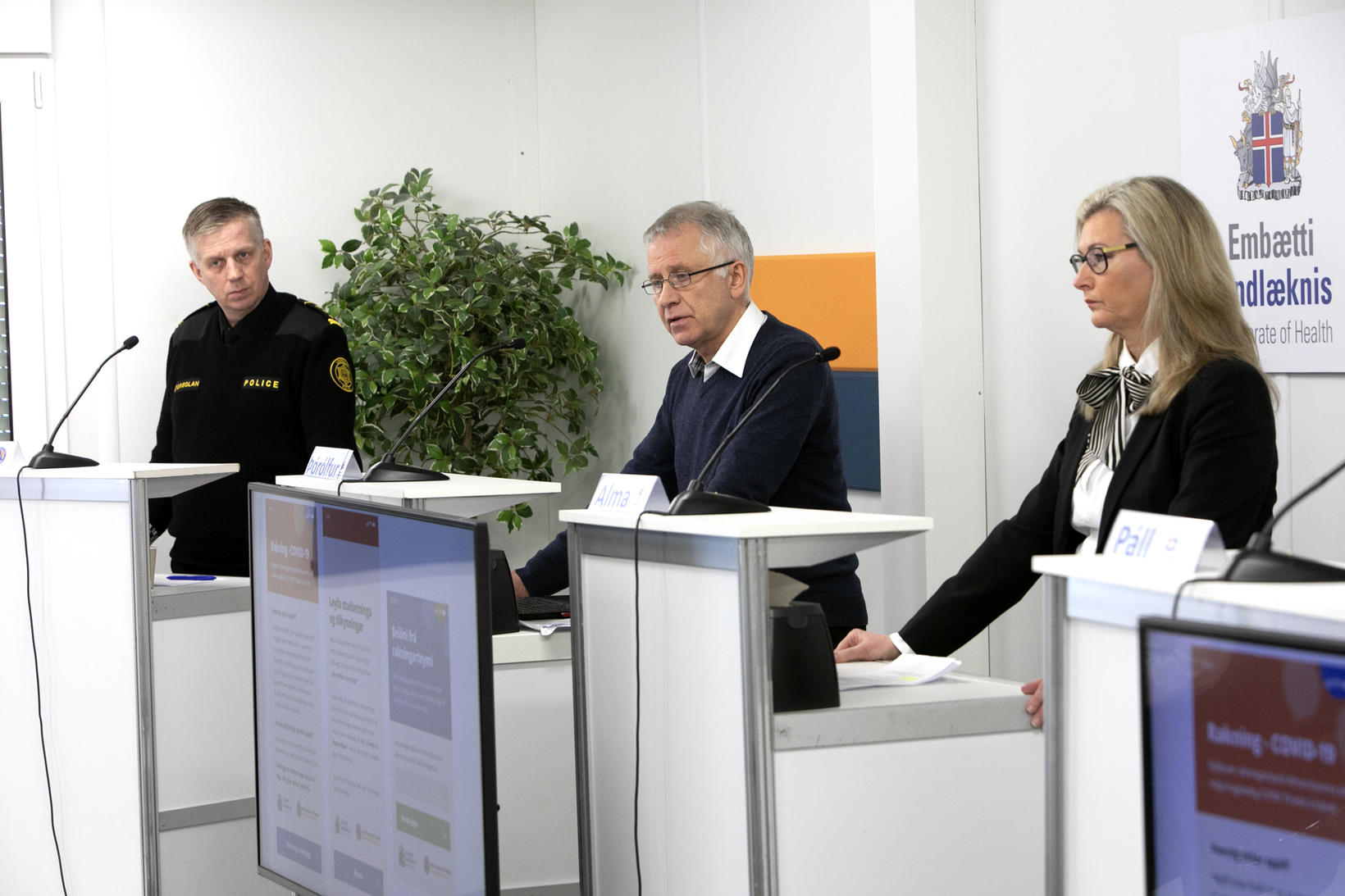Without Disease Prevention Measures, We’d See 3,000 Cases a Day
Without any disease prevention efforts, up to 3,000 people a day could be diagnosed with COVID-19 in Iceland the latter part of November. This is the gist of an article by Director of Health Alma Möller, Chief Epidemiologist Þórólfur Guðnason, and Chief Superintendent Víðir Reynisson, published in Fréttablaðið today.
In the article, quoted by mbl.is today, they stress the importance of current disease prevention measures and note that the health care system cannot possibly handle the high number of patients that would result without such measures.
The term R0 indicates how contagious a disease is, that is, how many people on average will contract a disease from one infected person.
Following is an excerpt from the article:
“The coronavirus’ R0 is believed to be 2.5-6. If the R0 equals 2.5, then 60 percent of the nation must contract the disease for herd immunity to be reached. If the R0 equals 6, then 83 percent [must contract the disease].
“If 60 percent of the nation (219,000 people) became infected, then 7,000 individuals could require hospitalization, about 1,750 of them in intensive care, and 660 could die, based on ratios from the first wave of the disease.
“If the virus were allowed to spread without intervention, the health care system would without a doubt not be able to handle the numbers, and all these figures would increase considerably.
“A new Finnish prediction model expects that without any disease prevention measures, Iceland could see 88,000 cases [of COVID-19] for the coming two and a half months and up to 3,000 new confirmed cases a day the latter part of November. This must be kept in mind when determining what disease prevention measures to take in the coming months.
“In addition to the impact on health care services due to COVID-19, regular health care services could not be offered for other diseases. The best way to be able to continue offering the health care services the nation needs is to keep the number of infections in society to a minimum.
“Besides, herd immunity would wreak havoc in society: securing essential infrastructure and service would be difficult if a large part of the population were ill. This became evident in countries that fared the worst at the beginning of the pandemic.”
The authors of the article specifically address the Great Barrington Declaration, which recommends herd immunity and holds that strict measures affect people’s health in a negative way. They, by contrast, stress that the measures taken in Iceland when the third wave hit were absolutely necessary, due to increased stress on the health care system.
The authors stress the importance of finding a middle-of-the-road approach, which aims at keeping infections to a minimum, while disrupting our daily lives as little as possible.
Finally, the authors emphasize the importance of unity among the nation in this difficult battle.


/frimg/1/38/77/1387784.jpg)





